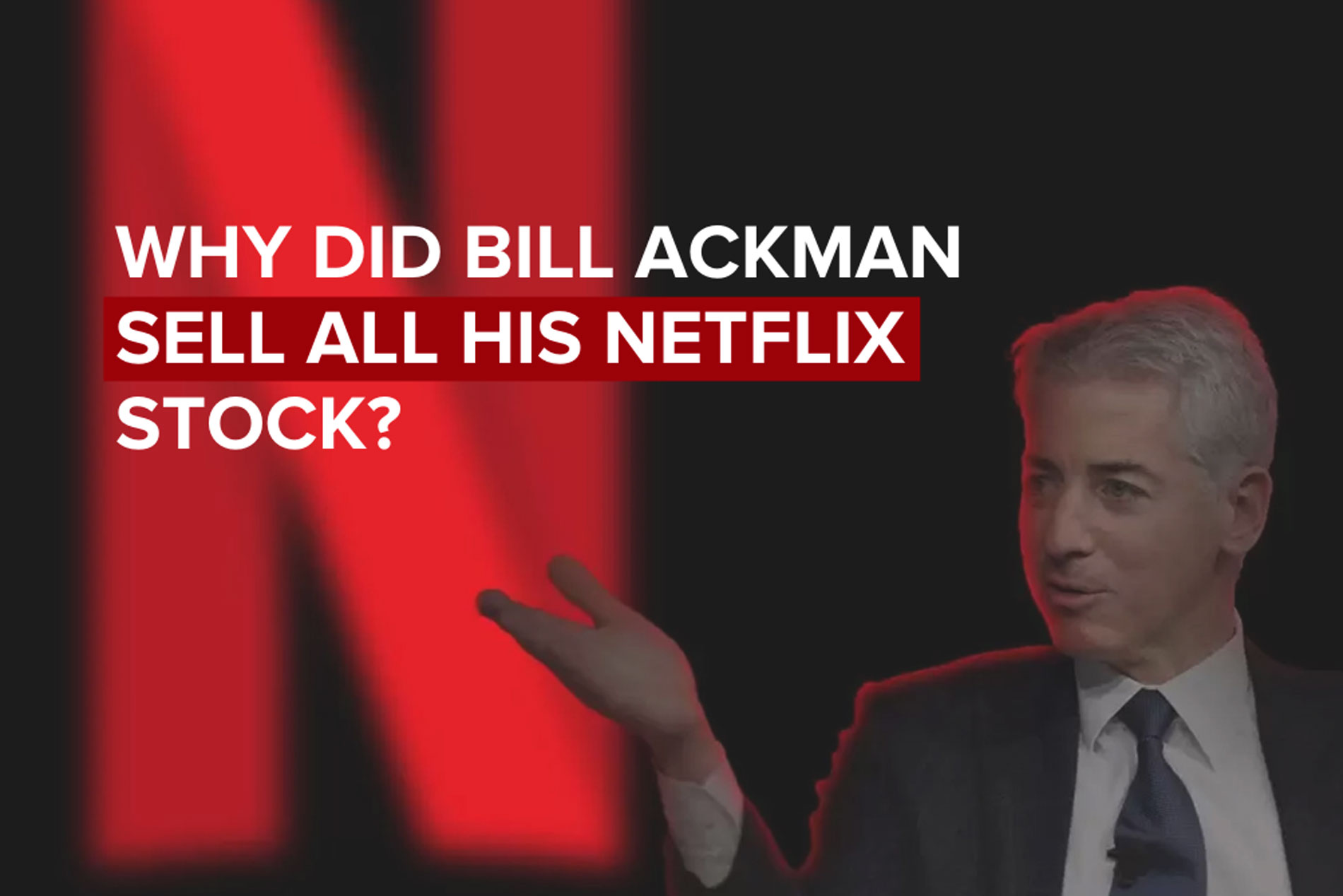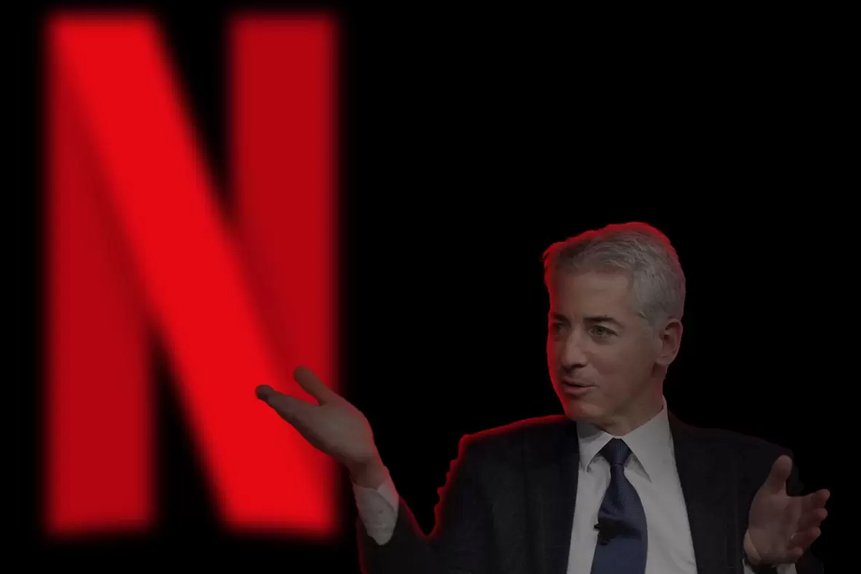
Friday, May 06, 2022
Why did Bill Ackman sell all his Netflix stock?
تم إعداد هذا المنشور من قبل سنشري للاستشارات


Bill Ackman’s decision to dump his Netflix stake left him with a $430m loss. The streaming giant’s dwindling subscriber figures were a major concern to the hedge manager, who believes that there is now a high level of uncertainty surrounding the investment case for the stock.
Bill Ackman (pictured) is known as a star stock-picker. However, on 20 April, less than three months after buying shares in Netflix, Ackman sold his stake for a $430m loss after the company reported a significant slump in subscribers.
Back in January, the hedge fund billionaire bought a $1.1bn stake in Netflix in a bid to capitalise on the streaming giant’s falling valuation. The 3.1 million shares acquired implies that the average price was around $354 per share, which means the company’s market capitalisation had almost been halved since the stock peaked at a 52-week high of $700.99 on 17 November.
Explaining the purchase, Ackman told shareholders of Pershing Square Holdings [PSH.L] that Netflix was a company he had long admired because of its low churn rate relative to that of rival streaming services. It also had a “proven track record of elevating regional productions like Squid Game, Casa de Papeland Lupin into the global cultural zeitgeist”.
Ackman acknowledged there could be near-term variability in revenue and profit, but the long-term outlook was rosy. “We believe Netflix’s current valuation represents a meaningful discount to intrinsic value for a business of its quality and exceptional growth potential,” he added. That soon changed when the streaming giant posted dwindling subscriber figures.

Subscriber concerns cloud investment case
Netflix reported a net loss of 200,000 subscribers globally in the first quarter, exacerbated by turning off its service in Russia, where it had 700,000 subscribers. It expects to shed a further 2 million in the second quarter. The news resulted in the Netflix share price dropping by 35% in just one day, on 21 April.
In a move that it hopes will boost new sign-ups, the company intends to start cracking down on password sharing between households. Yet, there’s a question mark over whether non-paying users will be willing to sign up for the service. Michael Nathanson, senior research analyst at MoffettNathanson, covering the media industry, believes this aggressive tactic could be a sign that Netflix is “hitting a wall” and might struggle to add future subscribers organically.
The company is hoping it can bump up subscriber numbers by enticing them with a lower-cost, ad-supported subscription, but this isn’t expected to be rolled out to customers for a year or two.
Ackman is concerned there will be a high level of uncertainty until the streaming service can resolve the subscriber situation.
“While we believe these business model changes are sensible, it is extremely difficult to predict their impact on the company’s long-term subscriber growth, future revenues, operating margins, and capital intensity,” Ackman wrote in a letter to shareholders.
His decision to sell immediately rather than ride it out is likely to be based on past experience of bad investments. In 2017, he exited struggling Valeant Pharmaceuticals (now Bausch Health [BHC]) to a roughly $4bn loss after a couple of years of dismal returns.

Looking for opportunities
No indication has been given as to how the Netflix funds might be reallocated. Ackman did stress, though, that the current cocktail of headwinds facing the markets — inflationary pressures and geopolitical tensions — is creating volatility in security prices. “We, therefore, expect to find a good use for the Netflix proceeds,” he added.
Pershing Square Holdings currently has stakes in Chipotle [CMG], Restaurant Brands [QSR], home improvement retailer Lowe’s [LOW], real estate outfit Howard Hughes [HHC], residential mortgage provider Federal National Mortgage Association [FNMA] and Federal Home Loan Mortgage Corporation [FMCC].
Ackman also initiated positions in Canadian Pacific Railway [CP], Domino’s Pizza [DPZ] and Universal Music Group [UMG.AS] in 2022. The latter made its public debut on the Amsterdam stock market in September, having previously been lined up to merge with Ackman’s NYSE-listed SPAC Pershing Square Tontine Holdings [PSTH].
In the first quarter of the year, Pershing Square Holdings outperformed the S&P 500 with a positive return of 0.1%, compared with the index’s negative return of 5%.
“Our companies continue to report strong earnings and their operations are not materially exposed to the [Ukraine] conflict,” noted Ackman in Pershing’s Annual Report for 2021.
Source: This content has been produced by Opto trading intelligence for Century Financial and was originally published on www.cmcmarkets.com/en-gb/opto/why-did-bill-ackman-sell-all-his-netflix-stock.
Disclaimer: Past performance is not a reliable indicator of future results.
The material (whether or not it states any opinions) is for general information purposes only and does not take into account your personal circumstances or objectives. Nothing in this material is (or should be considered to be) financial, investment or other advice on which reliance should be placed. No opinion given in the material constitutes a recommendation by Century Financial or the author that any particular investment, security, transaction or investment strategy is suitable for any specific person.
Century Financial does not endorse or offer opinion on the trading strategies used by the author. Their trading strategies do not guarantee any return and Century Financial shall not be held responsible for any loss that you may incur, either directly or indirectly, arising from any investment based on any information contained herein.
















